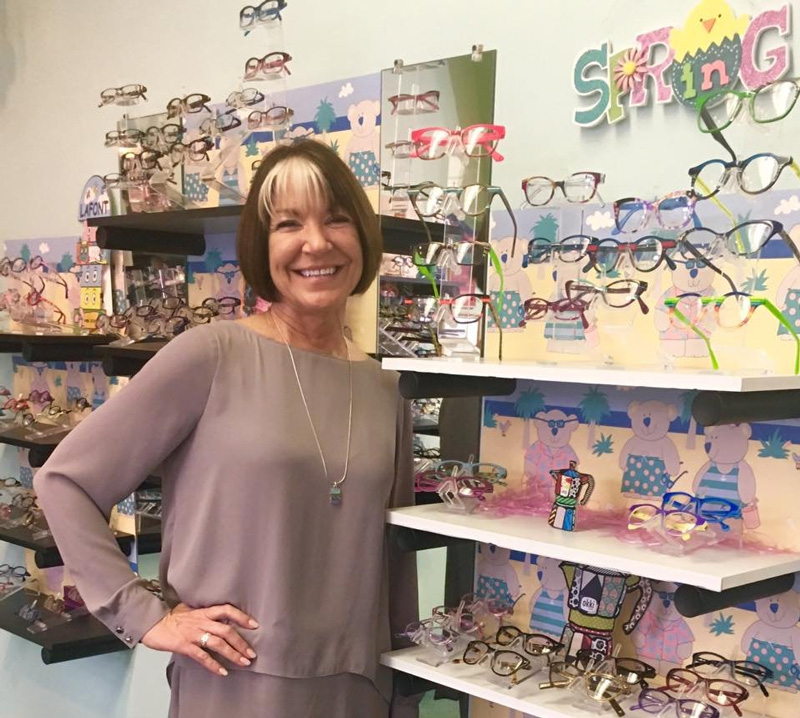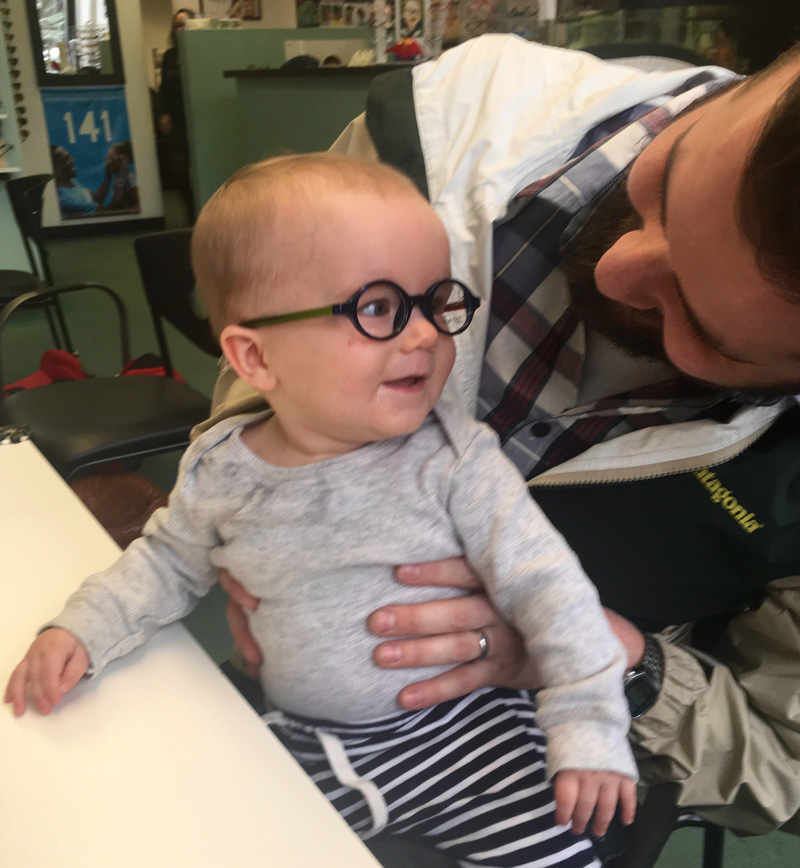

Linda Chous, OD, still recalls that she wore a fabulous pair of turquoise cat-eye eyeglasses when she was in fourth grade. She loved them, and that memory surfaced years ago when she was working as an OD in a corporate setting and overheard a little boy telling the optician that he wanted red eyeglasses. The optician told the boy they didn’t make children’s frames in red, she recalls.
That exchange furthered Dr. Chous’ motivation to open a children’s practice, The Glasses Menagerie, in Minneapolis, Minnesota, 28 years ago. “Every child deserves to have a choice in frames,” she says. “My idea was to have a practice where kids felt comfortable coming and parents felt confident bringing them into a child-friendly alternative when a child came home with a note from the school nurse that he or she had failed a vision screening.”
She had experience providing eye care to children. Prior to attending optometry school, she had worked as an ophthalmic technician in California for a pediatric ophthalmologist, who was “an incredible mentor. I’d stand outside his exam room just so I could hear how he communicated so well with young patients and their parents.” She also wanted to offer a strong pediatric optical and realized she’d have to develop a good relationship with ophthalmologists. So she visited all the pediatric ophthalmologists in the area, telling them that she wanted to partner with them in the optical care of their young patients who needed eyewear. “It was very well received by those ophthalmologists who wanted to refer to trained pediatric opticians, and they also knew that some of the patients I would be seeing might need surgical care.”


She knew she had a hot idea when a skeptical ophthalmologist from the university stopped by her office one day before she opened to see what she was doing there. He became one of her practice’s biggest advocates.
Today her practice incorporates myopia management services, as well as vision therapy and refractive vision care. Dr. Chous is chief eye care officer for United Healthcare, and she began researching myopia management as part of her role. “I was unconvinced at first. But after taking the course from the Brien Holden Vision Institute, I became a convert,” she says. The program helped her not only understand the scientific evidence but also how to have the conversation on myopia with families in a “fluid and credible way. The program gives you the tools.”
Adding myopia management services can be a real practice-changer, she says. But it does require education for the doctors, staff and especially parents, many of whom simply got stronger eyeglasses each year while they were growing up. By educating them that both the rate and the progression of myopia is more acute now and that doctors know more about the long-term risks of high myopia and have treatment options to reduce progression, she is optimistic that ODs who include this aspect of children’s vision into their practices can impact these kids’ vision for life.



